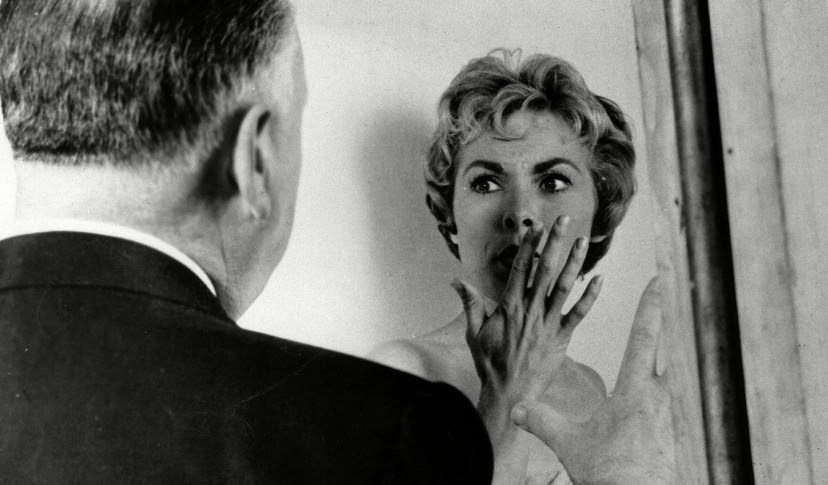Event
All you psychos.
A conversation about horror on screen and its psychological and historical implications.

The event will feature a conversation between Laurence Rickels of the Akademie der Bildenden Kuenste (Karlsruhe, Germany), Liliane Weissberg of the University of Pennsylvania, and Jean-Michel Rabaté, a Senior Curator at Slought. It has been organized in partnership with Penn Cinema Studies, the Department of Germanic Languages and Literatures, and The Psychoanalytic Center of Philadelphia (PCOP). The event will build upon Rickels' forthcoming book The Psycho Records, which revisits Alfred Hitchcock's Psycho (1960) and the genre's continued identification with the film's iconic shower scene.
From Freud's essay on the uncanny to Lacan's conception of the "Thing," there is an abundance of literature on psychoanalysis and horror. These readings all raise essential questions about our bodies and our minds. Does horror serve a therapeutic purpose? Does our enjoyment of it help us overcome our own traumas? Or does it betray our perverse proximity to the monster within us?
In making tangible how life can be violated, horror also enables audiences to consider moral questions concerning justice and accountability, and how vulnerability impacts one's sense of self. It invites us to reflect on the psychological impact of fear and terror on daily life, and our desire for meaning and stability in a violent and chaotic world.
The genre has provided an essential forum for cultural commentary as well, notably in films such as George A. Romero's Night of the Living Dead (1968). Released during the Vietnam war, shortly after the assassinations of Malcolm X and Martin Luther King, Jr., the film manifests America's complex relationship with race and the civil rights movement. The central character and hero, Ben, is a black male who is killed at the end of the film not by zombie hordes, but by police officers sent to save him, which sensitizes us then and now to the reality of state-sponsored violence against communities of color. The pervasiveness of violence in our society is similarly explored in Stephen King's It (1990), where a demonic clown personifies the detriments of American colonialism. Such films remind us of the critical vocabulary of the genre, and its implications for the present.
